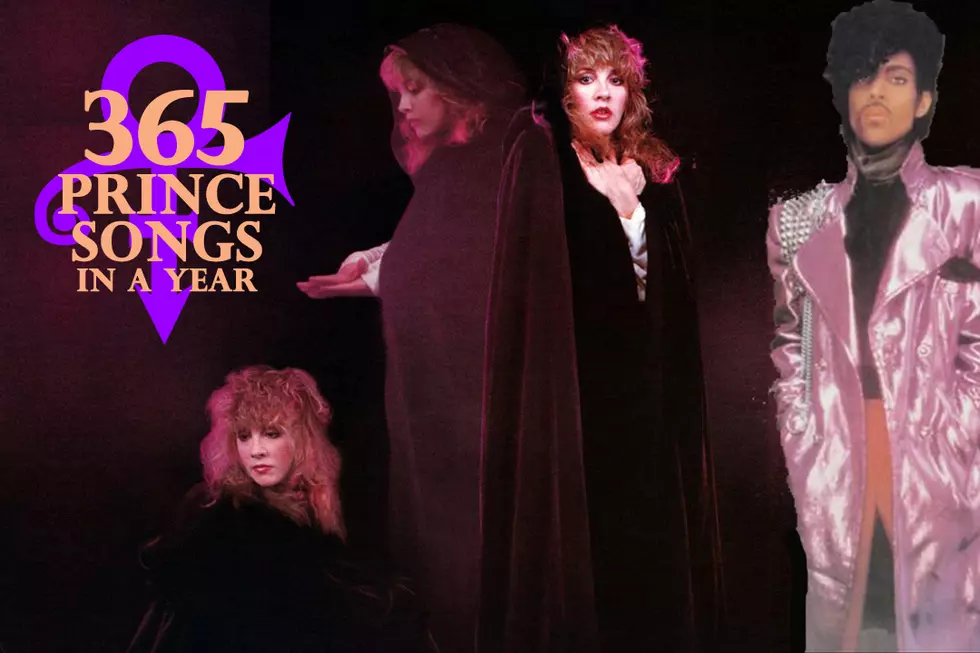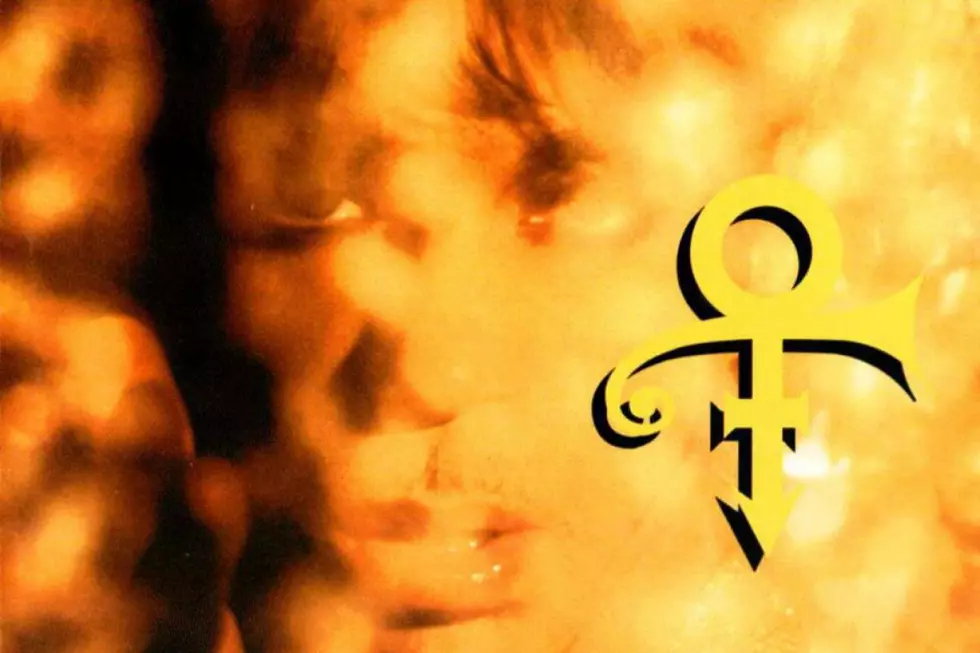
Prince’s ‘Dinner With Delores’ Takes a Swipe at His Label (Or Madonna?): 365 Prince Songs in a Year
To celebrate the incredibly prolific, influential and diverse body of work left behind by Prince, we will be exploring a different song of his each day for an entire year with the series 365 Prince Songs in a Year.
"Dinner With Delores," the lead single from Prince's Chaos and Disorder, arrived on June 12, 1996, at a career nexus.
This would be the first song he'd ever officially premiered online, streamed via a special website devoted to Prince's new album. At the same time, Chaos and Disorder was also the final project under his original contract with Warner Bros.
Prince had taken to openly discussing the album as a contractual obligation. In a move designed in part to frustrate this label, he'd also changed his name a custom-made glyph that combined the astrologically inspired symbols for men and women.
He then took things one step further during a July 8, 1996 appearance on The Late Show, where Prince performed "Dinner With Delores" with the word "slave" scrawled across his right cheek. Introducing Prince, David Letterman noted that he was "one of the biggest names in music – unfortunately, nobody can pronounce it."
All of that made deciphering the lyrics to this track – ostensibly about a date with a ravenous, sex-crazed date – something of a purple-colored parlor game.
A case could be made that he was talking about Warners, while others have connected the dots to a memorable lunch Prince had with Madonna. Another theory focused on C. Delores Tucker, a dogged crusader against coarse language in popular music who'd risen to infamy in the Chaos and Disorder era. (She was viciously criticized by name in a 1996 song by Tupac Shakur, and then by a string of rappers including KRS-One, Jay-Z, Lil' Kim, the Game and others.)
Prince's dispute with Warner Bros. revolved around their entrenched desire that he repeat the successful template used on Purple Rain, outrage over an antiquated deal in which they owned his back catalog, and the art-less, money-focused nature of their business relationship. The fictional Delores, meanwhile, is described as a dinosaur who's packing it in, a one-track mind obsessed only with sating her own prodigious appetites. Later, Prince also pointedly mentions a bell that's been broken since 1984.
Of course, that kind of blind side wouldn't have been out of character for the artist then formerly known as Prince.
"People think I'm a crazy fool for writing 'slave' on my face, but if I can't do what I want to do, what am I?" he said in a brutally honest 1996 talk with Rolling Stone. "When you stop a man from dreaming, he becomes a slave. That's where I was. I don't own Prince's music. If you don't own your masters, your master owns you."
The liner notes make a point of stating that Chaos and Disorder was "originally intended for private use only; this compilation serves as the last original material recorded by (symbol) for Warner Brothers."
As for Madonna, she'd taken an earlier swipe at Prince while recounting a meal where "he was just sipping tea, very daintily. I was stuffing food down my face and I was like, 'Aren't you going to eat?'" she told the Los Angeles Times in 1994, then mimicked a politely whispered "no." "And I thought, 'Oh my God!' I have this theory about people who don't eat. They annoy me. It's something about being in control."
Maybe "Dinner With Delores," despite its jangly, Around the World in a Day-style underpinning, was Prince's flinty response?
Whether it was aimed at her or at Warner Bros., one thing is for sure. As "Dinner With Delores" drew toward a musical conclusion that Questlove once memorably dubbed the "best ending and fade in postmodern black pop history," Prince was ready to move on.
"No more," he sang, dismissively. "That's the end."
Prince Magazine Cover Tributes From Around the World
More From Diffuser.fm









